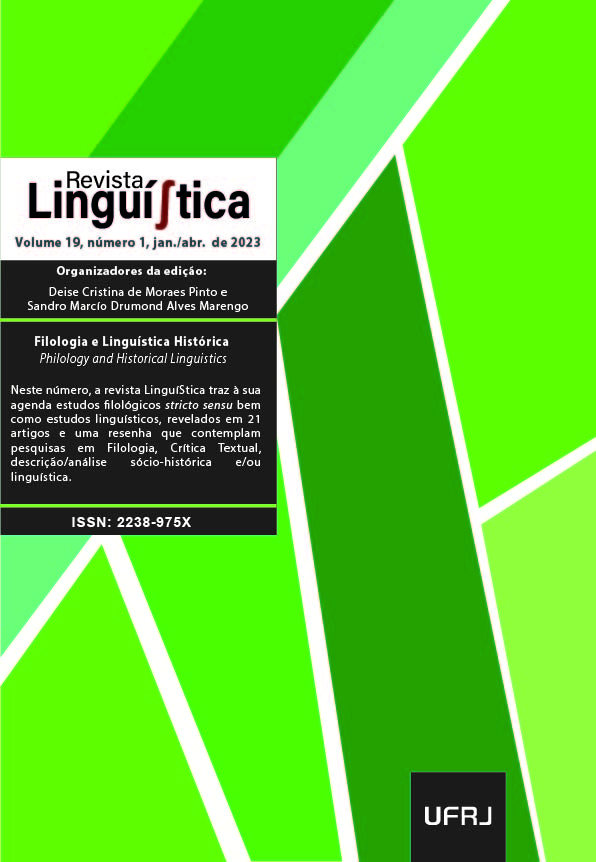Insubordinate clauses in old Portuguese: preliminary notes
DOI:
https://doi.org/10.31513/linguistica.2023.v19n1a57700Keywords:
insubordination, old portuguese, historical syntax, functionalism.Abstract
Since Evans (2007), numerous investigations about clauses with subordinate form, but with syntactically independent functioning have been observed in different languages (EVANS; WATANABE, 2016). This phenomenon has been labeled as insubordination, although there are similar descriptions that adopt other nomenclatures. Evans’ (2007) pioneering study also reveals one of the most widespread hypotheses among scholars about origins of these structures, according to which insubordinate clauses are the result of a diachronic process in which the main clause is ellipsed and the subordinate clause is reanalyzed, preserving formal traces of syntactic dependence. Despite plausibility of this hypothesis, we found that most research on insubordination has examined only synchronic data, without effectively exploring a diachronic trajectory of change that evidenced the ellipse hypothesis. Thus, in this article, we investigate the existence of insubordinate clauses in Old Portuguese, examining documents dating from 14th century and extracted from Corpus Informatizado do Português Medieval (CIPM). Our aim is to verify the diachronic hypothesis about the origin of insubordinates in Portuguese. This text has a preliminary character, since reported data are part of a broader project, in which we intend to diachronically map occurrences of insubordinate clauses in history of Portuguese, from 13th century to 21st century. Our first results provide evidence contrary to the ellipse hypothesis, since we found more than one pattern of insubordination in the historical text analyzed.Downloads
Published
Issue
Section
License
Copyright (c) 2023 Revista Linguí∫tica

This work is licensed under a Creative Commons Attribution-NonCommercial 4.0 International License.
Authors who publish in the Revista Linguí∫tica agree with the following terms:
The authors maintain their rights, ceding to the journal the right to first publication of the article, simultaneously submitted to a Creative Commons license permitting the sharing with third-parties of published content as long as it mentions the author and its first publication in the Revista Linguí∫tica.
Authors may enter into additional agreements for the non-exclusive distribution of their published work (for example, posting in online institutional or non-profit repositories, or book chapters) so long as they acknowledge its initial publication in the Revista Linguí∫tica.

The journal Revista Linguí∫tica is published by the Post-Graduate program in Linguistics of UFRJ and employs a Creative Commons - Attribution-NonCommercial 4.0 International (CC-BY-NC).









